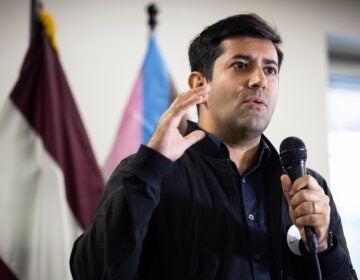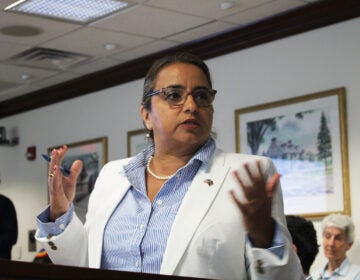What’s changed in the refugee resettlement hub of Lancaster
Listen 7:05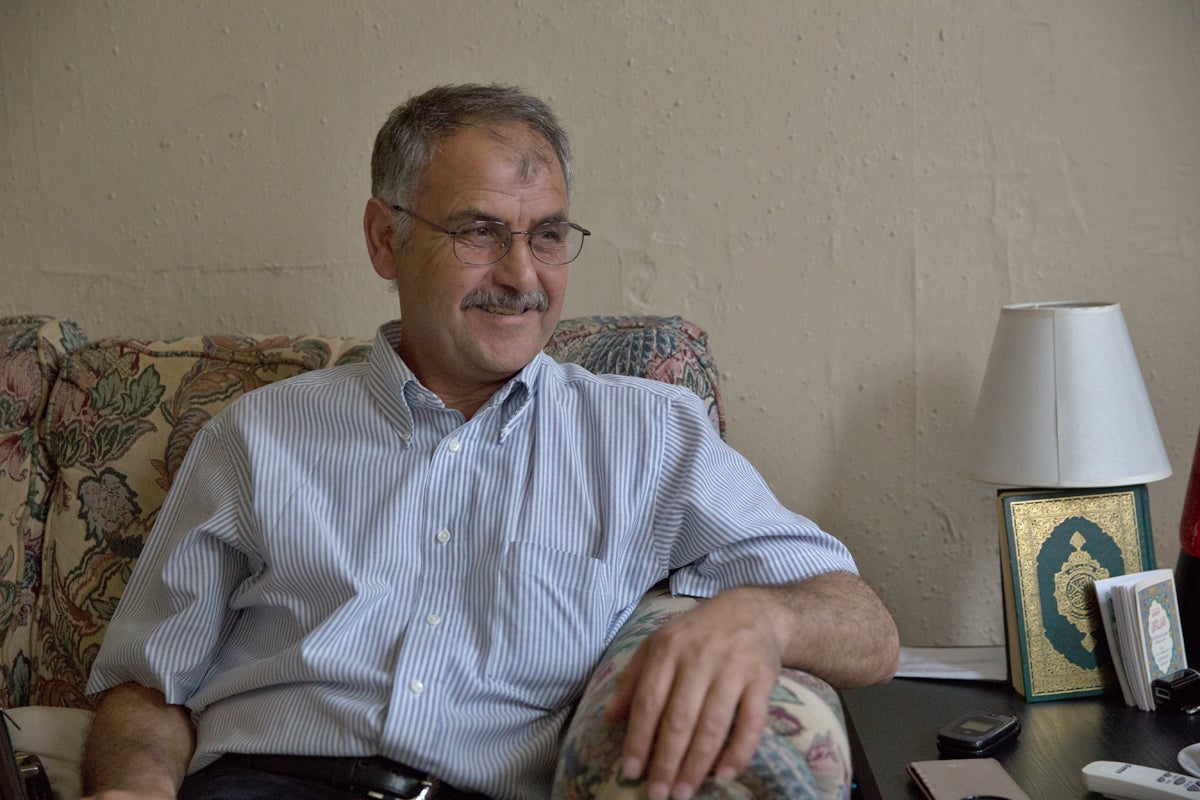
Farhan Al Qadri and his family fled for Jordan after he said 70 to 80 mortars exploded near their home in Daraa, Syria. (Lindsay Lazarski/WHYY)
Things have changed for people who resettle refugees, and their clients. Even in states like Pennsylvania, where the governor supports resettlement.
Farhan Al Qadri was doing well for himself, running a warehousing business that took him three decades to build. It kept him on the road and away from his wife and children at times. But it also afforded them a 20-room house with a courtyard in the middle, and plenty of land — including a small farm — just outside the Syrian village of Daraa.
Did he consider himself wealthy?
“It was very excellent,” he says, nodding. “But now, I have zero.”
Farhan says his savings, his car and his wife Muna’s jewelry all went toward paying for the family to live in Jordan after they fled their native Syria.
“We were not expecting to leave, we did not want to leave, not to Jordan, not to any other country. We really did not want to leave. But one day in August of 2012 around 70 or 80 mortars exploded near our houses, in our village,” he says. “The children were scared and my wife decided to take them across the border to Jordan.”
No furniture, no photos — none of their possessions made it here with them. Farhan worries about making ends meet, with his job cleaning machines for $10.50 an hour at Espenshade Farms.
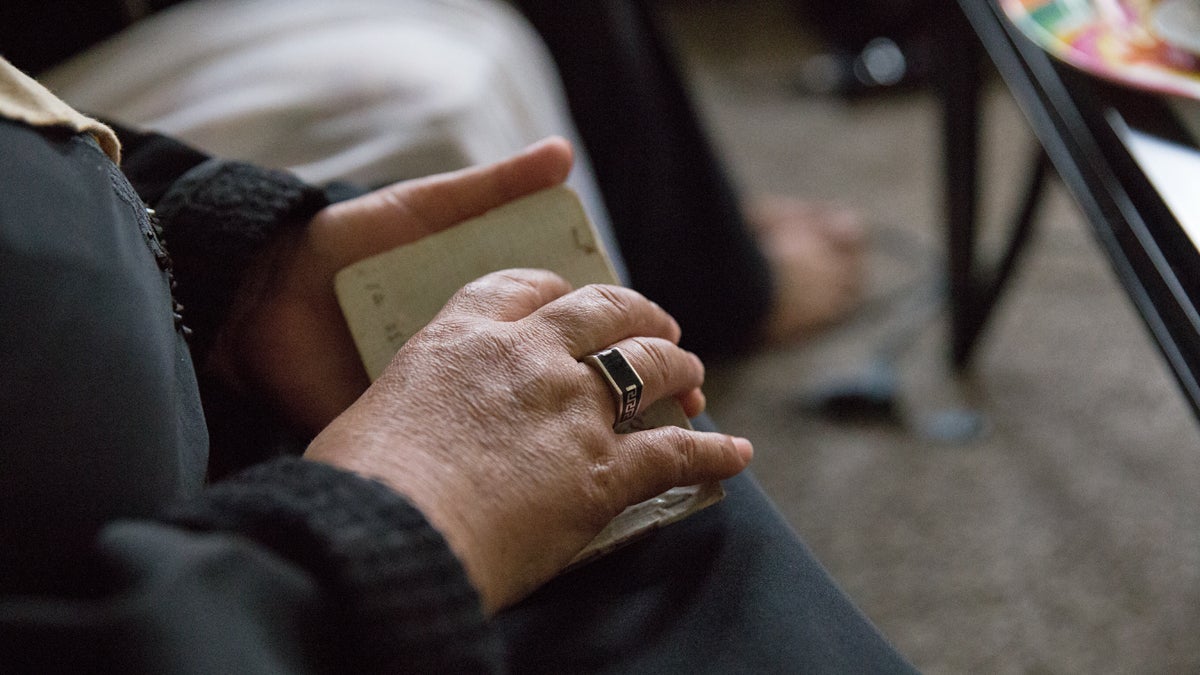
The family’s rowhouse on Prince Street in downtown Lancaster, afforded them through resettlement agency Church World Service, has three bedrooms and just one bathroom for the family of six, and the paint’s peeling.
But there’s a sign above the bathroom door that says, “Live simply, Live well.”
In some ways, that’s the story of how refugees are resettled. And Lancaster knows it, many times over.
Resettlement hub
The ideal scenario for resettling refugees is one that gives them the best shot for becoming self-sufficient as quickly as possible.
“Low unemployment, social services, cheaper housing, and an accepting community, and the number of churches here,” says Sheila Mastropietro, who runs the Lancaster office of Church World Service. (CWS is one of nine resettlement agencies in the U.S., each with local affiliates throughout the country).
It’s simple enough to explain, though not necessarily easy to find. Lancaster embodies that scenario so accurately that more than 600 refugees resettled there last year.
That’s a lot. The city has 70,000 people, and got more refugees than any other Pennsylvania city, including Pittsburgh and Philly, at last tally. Lancaster gets more than 20 states. New Jersey, for example, has almost nine million residents and got less than half as many refugees.
Lancaster’s rental market’s nearly saturated, though, so the resettlement agencies might expand and start resettling some refugees in York.
That’s not imminent. Mastropietro and her colleagues say it will be at least a year before that shift happens. But what if recent sentiments opposing resettlement, voiced by governors of some other states, lands more refugees in states seen as welcoming?
After the Paris attacks, 19 governors, including Pennsylvania Gov. Tom Wolf, said refugee resettlement should continue as is. Most others said they don’t want newly arrived Syrians as residents.
One Syrian family was diverted from Indiana to Connecticut.
Karen Monken, who runs pre-arrival services for another resettlement agency, HIAS, decided out of the gate to place a Syrian family in Pittsburgh.
“In the week that everything was in turmoil, I just thought, you know, this governor has spoken in favor so I’ll just put this one case here until we know the lay of the land and we know what our state department partners want us to do. And they have since reaffirmed they want us to keep placing as normal,” Monken says.
The federal government says states can’t directly prohibit entry by refugees, Syrian or otherwise, at least not legally.
But Texas is suing so it can prohibit entry.
In Pennsylvania, three-quarters of the state Senate supported a resolution to stop resettling Syrians pending review of screening and security measures. People protested Gov. Wolf’s supportive stance outside his home. In Allentown, the established Syrian community is apprehensive about new arrivals. And other issues remain.
Support is critical
Funding is a huge concern, according to Susan Fratzke, Policy Analyst and Program Coordinator at the Migration Policy Institute in Washington, DC.
The federal Department of State cuts checks directly to resettlement agencies for the $900 grant each refugee gets for living expenses during his or her first few months in the U.S.
Beyond that, support like food stamps, welfare, career mentoring or English language instruction — all of that is paid for mainly by the national Office of Refugee Resettlement, which passes the money through state governments.
“The state government would have the ability to withhold those funds or refuse to accept them. And that could cause problems to the operation of the programs on the ground. And that, of course, means that resettlement agencies might consider not locating someone in a state that said they’re going to do that, because it would be a much less welcoming place for the person because that person wouldn’t have access to the support they need,” Fratzke says.
That hasn’t gone on yet.
And the way resettlement works, it tends to happen in places with the capacity and will on the local level to welcome refugees.
But Mastropietro says in Lancaster, she’s thinking about things differently, after 28 years resettling refugees there.
“This is new to me, too, to think that people in Lancaster County would actually protest against having a refugee in their town, state, country,” she says.
Resettlement agencies say that as images of Syrians fleeing and sometimes dying in the process flooded the Internet, interest in helping them surged nationwide, including in Lancaster.
Mastropietro says support has been overwhelming, but there’s some been negative feedback about resettling Syrians in Lancaster. That’s reached her mainly indirectly, such as through comments on online news stories. Nothing in person or that’s reached refugees themselves.
“Maybe it’s because they’re not identified, or maybe it’s because Lancastrians support refugee resettlement, or the people who don’t support it don’t know who these people are, or where they are,” Mastropietro says.
Safer, but struggling
Farhan and his family were apprehensive, even years ago, at the prospect of going to the United States.
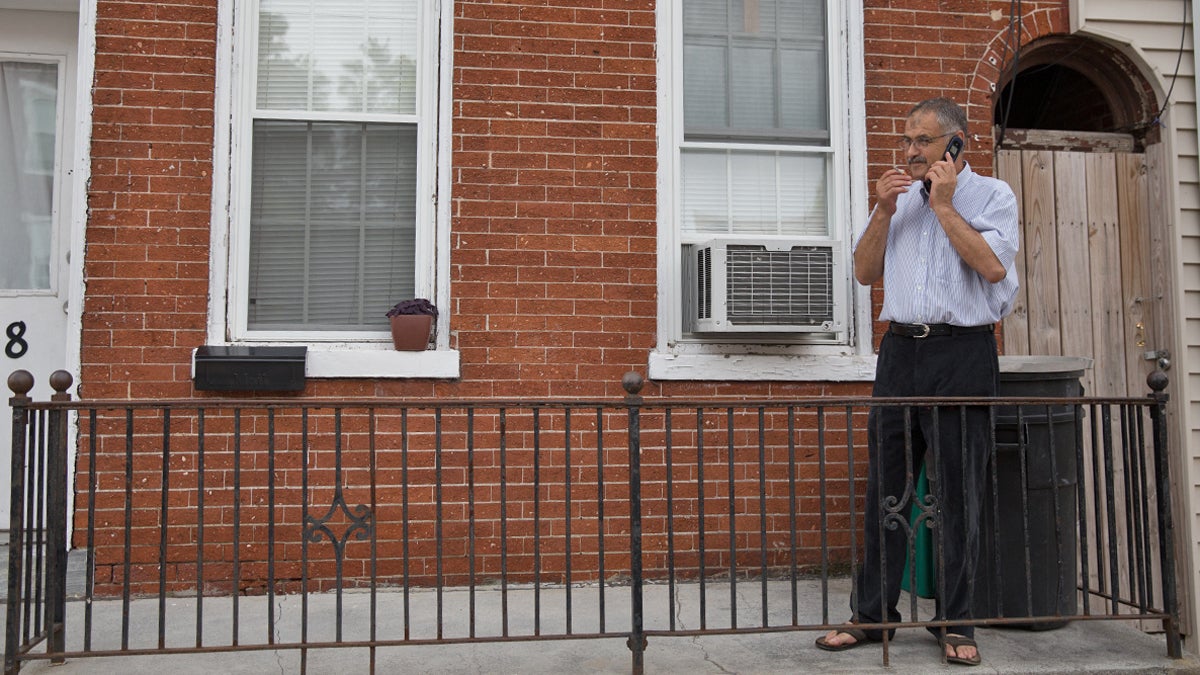
“I have daughters from a Muslim country, so there is fear that because they are Arab maybe there will be harassment, cursing and words not good for girls, in school, in the streets, because they wear the hijab,” Farhan says.
Muna says she gets some “strange looks” when she’s walking outside, which she attributes to her hijab. And she says that happens more often since the Paris attcks. But overall, she says, they’ve been pleasantly surprised.
“I don’t speak the American language, but I notice that they smile and it’s comforting because they are very human,” Muna says.
The family’s still struggling in many ways, though. Farhan wants to move to a newer, quieter, more spacious apartment after the year lease on this one runs out. That would mean going outside the city. He says he’d have to buy a car, but he isn’t making enough money right now to save up for one. His take-home pay barely covers rent and utility bills. Other necessities are covered with food stamps and $470 per month in cash assistance.
Then there’s their son Ahmed. The 21-year-old wasn’t cleared to come with them because during security screening interviews, he provided details about traveling to Jordan that differed from the rest of the family. That, and his age drew more scrutiny, according to his 16-year-old brother Mahre.
“I miss him. He was my friend. We used to do things together. I don’t have anyone like that over here,” Mahre says.
The family’s 24-year-old son was with Ahmed, but he fled to Germany. Ahmed stayed behind in Jordan with the hope he’d be able to join his family.
But U.S. Customs & Immigration Services has since denied of an appeal for family reunification. An immigration counselor advised Farhan to try again after he has a green card, which he can apply for in one year, according to the family’s resettlement caseworker.
Another older brother has sent Ahmed some money from Kuwait, where he moved for his career. The family’s eldest sister and brother-in-law are in the United Arab Emirates, for the same reason. Ahmed’s been unable to join them thus far. (Both countries have been criticized for not taking refugees from destabilized neighboring countries).
“[Ahmed] was very smart in school and I wanted him to come here and complete his education and find work in America. There was no more work in Syria [or Jordan,]” Muna says. “I just want him here with us, his siblings. He’s alone over there.”
WHYY is your source for fact-based, in-depth journalism and information. As a nonprofit organization, we rely on financial support from readers like you. Please give today.




